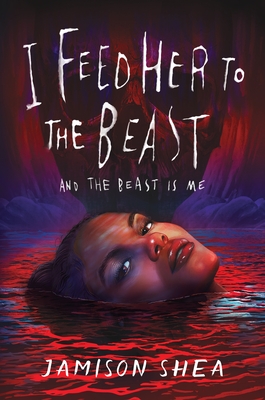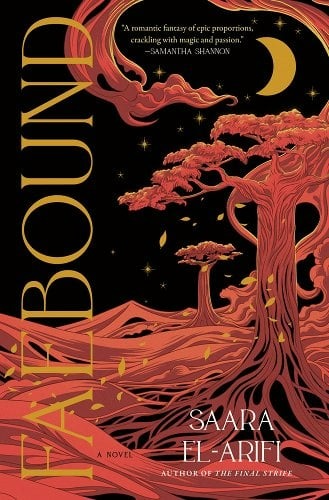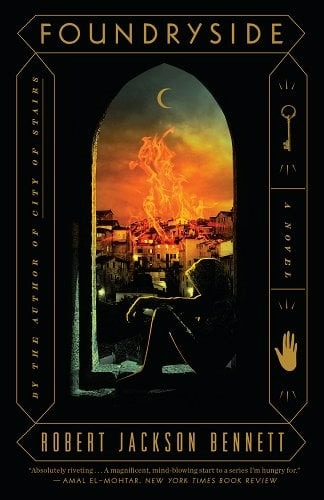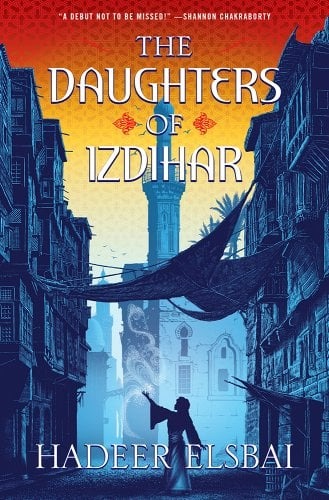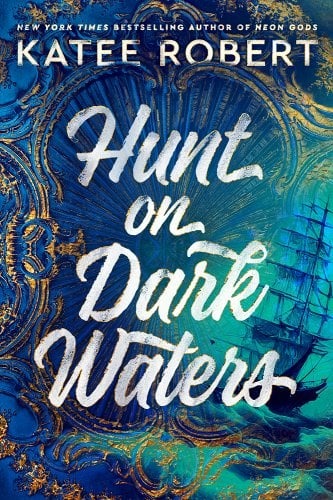Laure is a ballet dancer who has devoted herself entirely to her profession. She spends every waking moment honing her skill. And she is perfect. But as she soon learns, perfect is not enough. It doesn’t matter that she’s the best, because she’s fighting to rise up in an institution that sees her working classRead More
Queernorm Romantasy: Faebound by Saara El-Arifi
Yeeran is a warrior in the elven army and has known nothing but violence her whole life. Her sister, Lettle, is trying to make a living as a diviner, seeking prophecies of a better future. When a fatal mistake leads to Yeeran’s exile from the Elven lands, they are both forced into the terrifying wildernessRead More
Love and Rebellion: We Set the Dark on Fire by Tehlor Kay Mejia
Buy this from Bookshop.org to support local bookstores and the Lesbrary! We Set the Dark on Fire by Tehlor Kay Mejia is a young adult novel that follows teenager Daniela as she navigates becoming one of the wives to a vicious up-and-coming young man while simultaneously becoming a secret member of the rebel group La VozRead More
Cult Leader, Zealot, or Savior?: The Genesis of Misery by Neon Yang
Buy this from Bookshop.org to support local bookstores and the Lesbrary! Misery Nomaki (she/they) wields the power to manipulate holystone, an ability only saints or those void-touched have. She believes she is void mad, while the angel that guides her, Ruin, tells her she is the next Messiah. But regardless of what is the truth,Read More
Check Out This Intricate and Fast-Paced Sapphic Fantasy: Foundryside by Robert Jackson Bennett
Buy this from Bookshop.org to support local bookstores and the Lesbrary! After I finished devouring this year’s stunning fantasy murder mystery The Tainted Cup over the course of about three days, I knew that I had to dive into Robert Jackson Bennett’s back catalog immediately. Foundryside happened to be the one my library had the shortest hold list on,Read More
A Painfully Oblivious Lesbian Love Story: Cash Delgado Is Living the Dream by Tehlor Kay Mejia
Buy this from Bookshop.org to support local bookstores and the Lesbrary! Your enjoyment of Cash Delgado Is Living the Dream will depend heavily on how you feel about reading hundreds of pages of a truly oblivious queer main character. The kind of character who googles, “Can you be straight and have a sex dream aboutRead More
A Manga About Love of All Kinds: Doughnuts Under a Crescent Moon by Shio Usui
Buy this from Bookshop.org to support local bookstores and the Lesbrary! Last month, I raved about She Loves to Cook, and She Loves to Eat by Sakaomi Yuzaki. It was a pretty solid guess that I would also enjoy Doughnuts Under a Crescent Moon by Shio Usui, as they’re both slice-of-life manga about adult women who fall in loveRead More
A Sapphic Sherlock Series in Space: The Imposition of Unnecessary Obstacles by Malka Older
Buy this from Bookshop.org to support local bookstores and the Lesbrary! The Imposition of Unnecessary Obstacles is Malka Older’s second novella in the Mossa and Pleiti series, set in the far future, when the last of humanity is in a thriving colony on Jupiter amidst an expanding series of platforms and rails. Like the theRead More
A Thrilling Elemental Fantasy Debut: The Daughters of Izdihar by Hadeer Elsbair
Buy this from Bookshop.org to support local bookstores and the Lesbrary! Nehal has practically everything that a woman could ask for: wealth, a prestigious name, an engagement to one of the most eligible men in Alamaxa. What she doesn’t have, though, is the right to join the Weaving Academy on her own and learn howRead More
A Bisexual Disaster Romantasy: Hunt on Dark Waters (Crimson Sails #1) by Katee Robert
Buy this from Bookshop.org to support local bookstores and the Lesbrary! I have been slow to jump on board the romantasy bandwagon, partly because I am particular when it comes to romances, and partly because the subgenre has been pretty cis and straight. When I heard that Tiktok favourite Katee Robert had a new fantasyRead More
- 1
- 2
- 3
- …
- 7
- Next Page »
